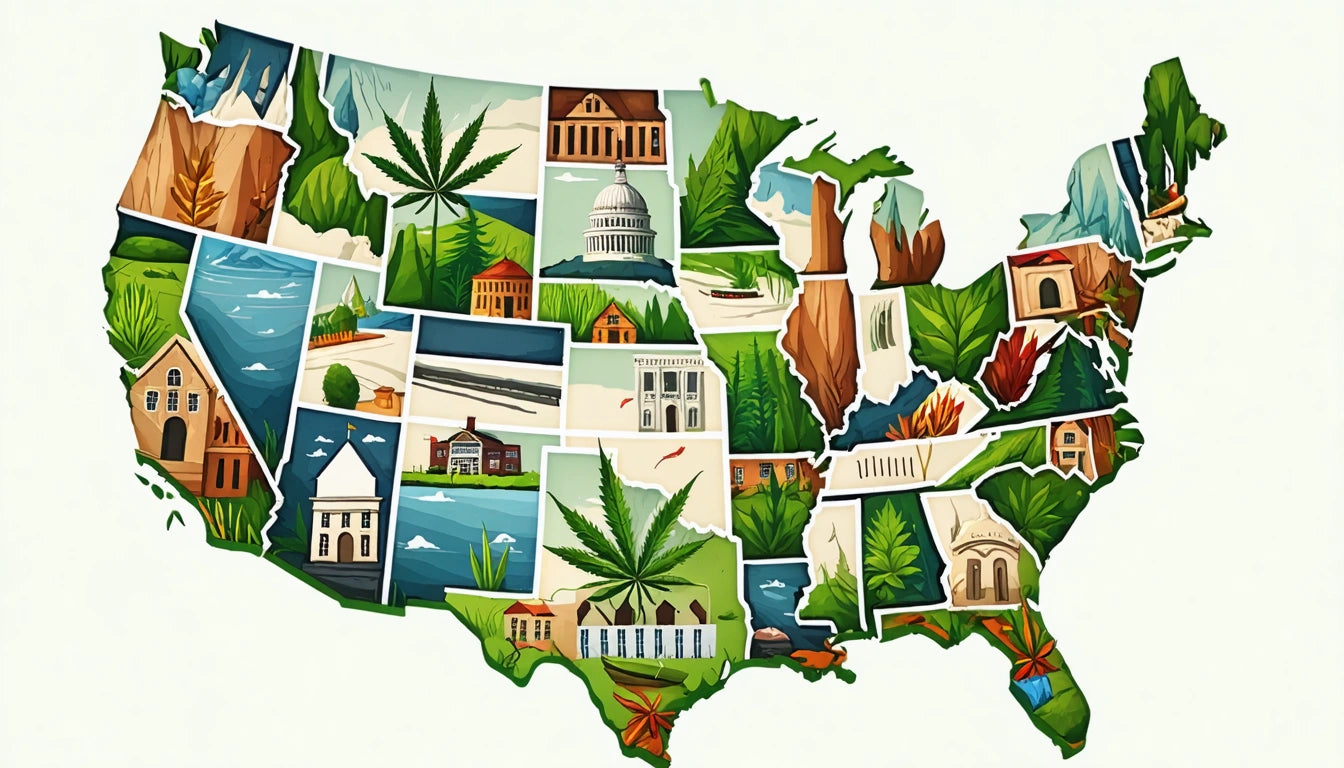Table of Contents
Medical Marijuana Legalization: How Many States Allow It and Where
The landscape of medical marijuana legalization continues to evolve across the United States, with patients and advocates tracking which states provide legal access to cannabis for therapeutic purposes. Understanding how many states have legalized medical marijuana and where medical cannabis is legal has become increasingly important for patients seeking alternative treatment options.
Current Status of Medical Marijuana Legalization in the US
As of 2024, medical marijuana is legal in 38 states, plus the District of Columbia, Puerto Rico, Guam, and the U.S. Virgin Islands. This represents a significant majority of the country that has embraced cannabis for medicinal purposes, despite its continued federal classification as a Schedule I controlled substance.
According to a comprehensive overview of states where medical marijuana is legal, each jurisdiction has implemented its own regulatory framework, creating a patchwork of laws across the country.
States with Comprehensive Medical Marijuana Programs
Most states with medical marijuana programs allow patients with qualifying conditions to access cannabis products through state-regulated dispensaries. These comprehensive programs typically include:
- Patient registration systems
- Medical marijuana cards
- Licensed dispensaries
- Product testing requirements
- Possession limits
In contrast, a small number of states have limited programs that only permit low-THC, high-CBD products for specific conditions like epilepsy.
Qualifying Conditions for Medical Marijuana Cards
What states have medical marijuana cards available depends on their specific legislation, but most programs require patients to have one or more qualifying medical conditions. While these vary by state, common qualifying conditions include:
- Chronic pain
- Cancer
- Epilepsy and seizure disorders
- Multiple sclerosis
- PTSD
- Glaucoma
- HIV/AIDS
Some states have expanded their qualifying conditions to include autism spectrum disorders. For those wondering about what states allow medical marijuana for autism, the list continues to grow as research supports its potential benefits for certain symptoms.
Regional Breakdown of Medical Cannabis Laws
Medical marijuana legalization shows distinct regional patterns across the United States:
Northeast and Mid-Atlantic
The Northeast has some of the longest-established medical cannabis programs, with states like Maine, Vermont, and Rhode Island being early adopters. Massachusetts has a robust program where specialized cannabis product offerings have expanded to meet diverse patient needs, including custom pre-rolls and other consumption methods designed for medical users.
West Coast and Mountain West
California led the nation with the first medical marijuana program in 1996, and the entire West Coast now permits both medical and recreational use. The Mountain West region has also broadly embraced medical cannabis, with notable exceptions being Wyoming and Idaho.
Midwest
The Midwest has seen a gradual expansion of medical marijuana programs, with Illinois, Michigan, and Ohio having comprehensive systems, while states like Iowa and Minnesota have more restricted programs.
South
The South has been slower to adopt medical cannabis programs, though Florida, Arkansas, and Louisiana now have functioning systems. Several southern states still only permit CBD oil with minimal THC content.
Recent Additions to Medical Marijuana States
The list of states where medical cannabis is legal in the US continues to expand. Recent additions include:
- Mississippi (2022)
- Alabama (2021)
- South Dakota (2020, though implementation faced legal challenges)
These newer programs often benefit from the experiences of earlier states, implementing more streamlined systems from the outset. For patients tracking how many states have legalized medical marijuana, these additions represent significant progress in access.
As detailed in this comprehensive guide to cannabis legalization, the distinction between medical and recreational programs continues to blur in some states where both are legal.
Patient Access and Registration Systems
Understanding what states have medical marijuana cards and how to obtain them is crucial for patients. Most states with medical cannabis programs require:
- Certification from a qualified healthcare provider
- Registration with the state's medical marijuana program
- Payment of application fees (which vary widely by state)
- Regular renewals (typically annually)
Some states maintain reciprocity agreements, allowing patients with cards from other jurisdictions to purchase medical cannabis while visiting. However, these arrangements vary significantly and patients should research destination state laws before traveling.
Expanding Legalization and Future Outlook
The trend toward medical marijuana legalization continues to gain momentum. States considering new or expanded medical cannabis programs in upcoming legislative sessions or ballot initiatives will likely increase how many states allow medical cannabis beyond the current 38.
Several factors are driving this expansion:
- Growing public support for medical cannabis access
- Mounting clinical evidence for certain applications
- Successful implementation in neighboring states
- Potential tax revenue and economic benefits
While federal legalization remains uncertain, the patchwork of state laws continues to evolve, with more states recognizing the therapeutic potential of cannabis and creating regulated access systems for patients in need.
For patients and caregivers navigating these systems, staying informed about where medical marijuana is legalized and understanding the specific requirements in their state is essential to accessing this treatment option legally and effectively.











Leave a comment
All comments are moderated before being published.
This site is protected by hCaptcha and the hCaptcha Privacy Policy and Terms of Service apply.